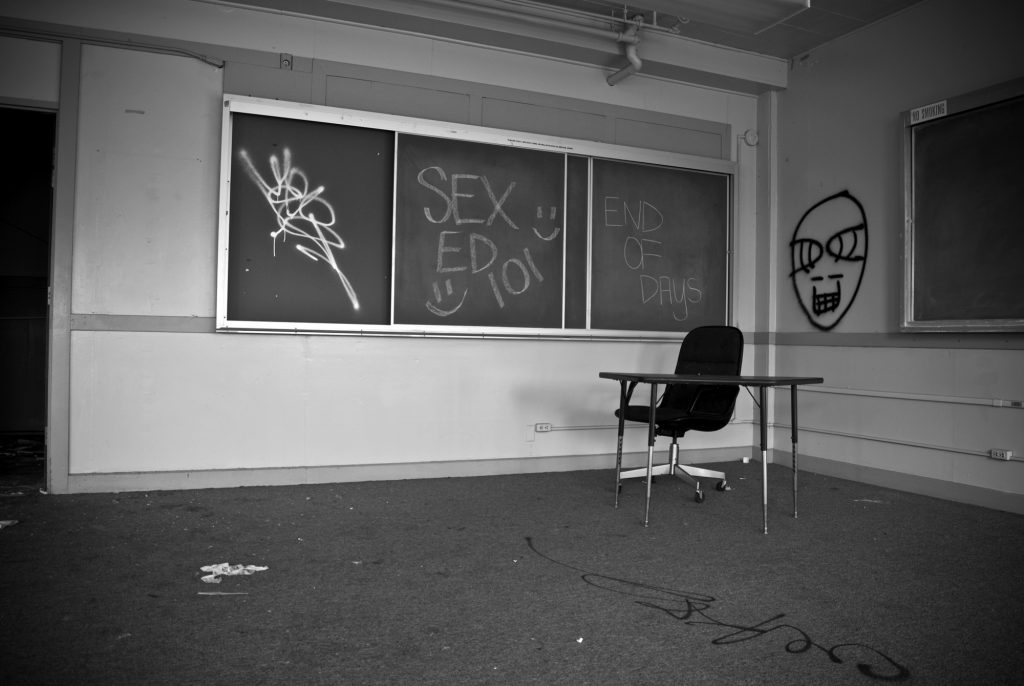Share this story:
Throughout elementary and middle school, I was bullied because of my femininity. I was teased endlessly because unlike my male peers, I did not enjoy rough sports or violent video games. When I had to play badminton for P.E., I refused to hit the shuttlecock, which I saw as a princess in a wedding gown. Instead I enjoyed singing, and performing in musical theatre, an activity that was, according to my bullies, “so gay.” I knew all the words to Evita and Wicked, but I did not have the words to help me understand my gender identity or defend myself against taunts about my sexuality.
Today, I am proud to be trans, queer, and South Asian-American. Yet my journey to understanding who I am was unnecessarily painful because of the lack of inclusive sex education. The schools I attended in Fremont Unified did not give me, or those who bullied me, any information about gender identity or sexual orientation. A comprehensive, LGBTQ+ inclusive sex education class would have been a great place to start.
I still remember my first experience with sex ed. In fourth grade, boys and girls were split into separate classes to learn about everything from puberty and changing bodies to relationships, intercourse, and the prevention of sexually transmitted infections. We were taught that men only have intercourse with women. Nothing about HIV/AIDS and its effect on queer youth. Nothing about transgender health or transitioning, nothing about LGBTQ+ relationships or identities.
Statistically, every class likely has lesbian, gay, bisexual, queer or questioning students. Yet no attempt was made to provide students like me with information we deserved to know about making healthy choices and keeping ourselves safe from harm. We did not hear the words “gay,” “transgender,” or “intersex.” Queer identities weren’t valued by our curriculum, and therefore neither were queer youth. So it is no surprise that when I strayed from traditionally masculine gender roles, I was bullied and called anti-LGBTQ+ slurs. My bullies didn’t know any better.
The sex education I received was incomplete and inaccurate because of its total erasure of LGBTQ+ people. Fortunately, in 2016 the State of California passed the California Healthy Youth Act that mandated progressive sex education that is LGBTQ+ inclusive and endorsed by many experts. Finally, the Fremont Unified School Board started work on adopting a new curriculum to replace its outdated one. The new 3Rs curriculum–Rights, Respect, Responsibility–took two years to finalize and was scheduled to roll out in Fremont schools last month.
Then, I learned that a group of parents had mobilized to put a stop to the 3R’s program. Some of them had even reached out to the Pacific Justice Institute–an organization that has been listed by the Southern Poverty Law Center as a hate group–for help. California Family Council, an organization that supports the dangerous practice of conversion therapy for LGBTQ+ youth as well as abstinence only sexual education, and that is a strong opponent of Planned Parenthood, has also been actively involved in working to derail the adoption of our new sex education curriculum in Fremont.
Growing up in Fremont, where Asian American students make up about 70% of the school population, any discussion of gender or sexuality was taboo at home. It was not until I left the Fremont Unified School District to attend an independent high school in another city that I was exposed to LGBTQ+ youth and started learning the vocabulary and facts I needed to understand myself.
Dozens of medical health professionals and LGBTQ+ organizations have reached out to the FUSD board, and hundreds of current and former Fremont Unified students have signed a letter to explain why they support inclusive sex education. Yet, the Fremont Unified School District board of trustees is now actively considering eliminating sex education in 4th-6th grade completely, or cutting back on many of the progressive measures proposed in the new curriculum. The California Healthy Youth Act requires comprehensive sex and HIV prevention education (at least) once in middle school and once in high school but leaves it to schools to decide if they implement the curriculum for younger ages.
Fremont Unified Superintendent, Dr. Kim Wallace, issued the following statement:
‘We have received many communications from involved parents, staff, students, and community members with a wide variety of ideas on the topic of Puberty and Sexual Health Education. The FUSD Board of Education and staff have dedicated serious time and commitment to fully examining the expressed concerns and advocacy for our young people. We will continue to listen, consider all angles, and ultimately, come to a decision that best serves and educates Fremont students.’
The trustees will be meeting today to make a final decision which will send a loud signal about whether Fremont Unified cares about ALL its students, including its most vulnerable and marginalized LGBTQ+ youth. This curriculum could save countless students like me from bullying and harassment, and provide them with the tools they need to live happy and safe lives. I sincerely hope the board will make the right decision, because the future of our students and even our city depends on it.
Sameer Jha is a student at The College Preparatory School in Oakland, activist and the founder of The Empathy Alliance, a nonprofit working to make schools safer for LGBTQ+ students across the U.S.
